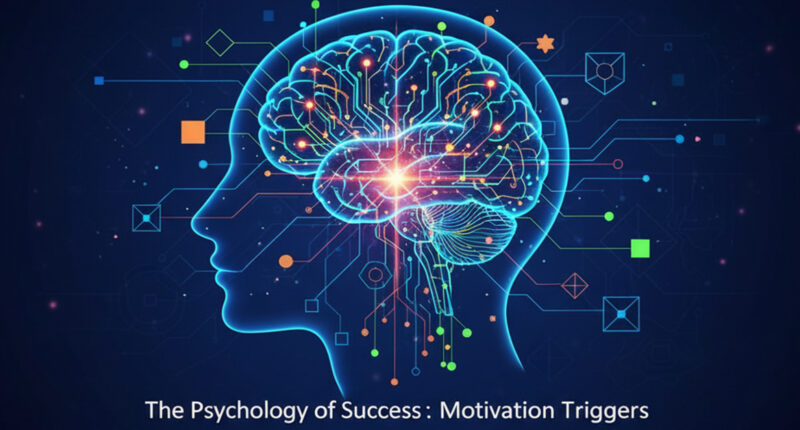Have you ever wondered why some people seem effortlessly driven while others struggle to take the first step? The answer often lies not in willpower alone, but in understanding the intricate dance of our brains and the psychological triggers that ignite motivation. Success isn’t just about what you do; it’s about how your brain is wired to do it.
At the core of our motivational system are neurochemicals, primarily dopamine. Often called the “reward chemical,” dopamine isn’t just about pleasure; it’s about anticipation of pleasure. When we set a goal and make progress, our brain releases dopamine, creating a powerful loop that encourages us to continue. To tap into this, break down large goals into smaller, achievable steps. Each completed mini-task becomes a tiny victory, triggering a dopamine release and propelling you forward.
Another crucial psychological lever is the concept of autonomy. Humans are wired to desire control over their lives. When we feel forced or dictated to, our motivation plummets. Conversely, when we feel a sense of choice and ownership over our tasks, our engagement skyrockets. Even in situations where you might not have complete control, finding areas where you can make decisions – whether it’s the order of tasks, the tools you use, or the approach you take – can significantly boost your inner drive.
Mastery is another powerful trigger. We inherently seek to improve and gain competence. The satisfaction of learning a new skill, solving a complex problem, or refining an existing ability is profoundly motivating. This isn’t about perfection, but about the journey of growth. Embrace challenges as opportunities to learn, and focus on incremental improvements rather than flawless execution. The sense of growth itself becomes the reward.
Finally, consider the role of relatedness or connection. While often overlooked in discussions of individual success, our social nature plays a huge part. Working towards a goal with others, having a support system, or even feeling like your work contributes to a larger community can be incredibly motivating. This shared purpose and sense of belonging tap into our innate need for connection, transforming solitary struggles into collective endeavors.
By understanding and consciously employing these psychological principles – leveraging dopamine through small wins, fostering autonomy, seeking mastery, and building relatedness – you can stop fighting against your brain and start working with it. Unlocking these motivation triggers isn’t about tricking yourself; it’s about optimizing your natural mental architecture for sustained success.









